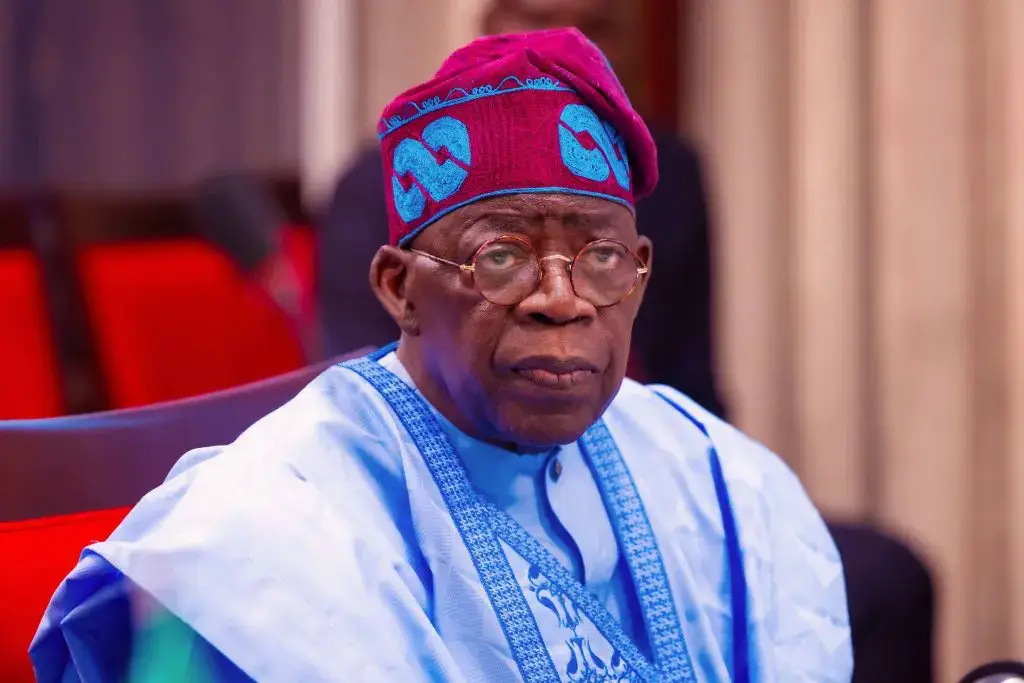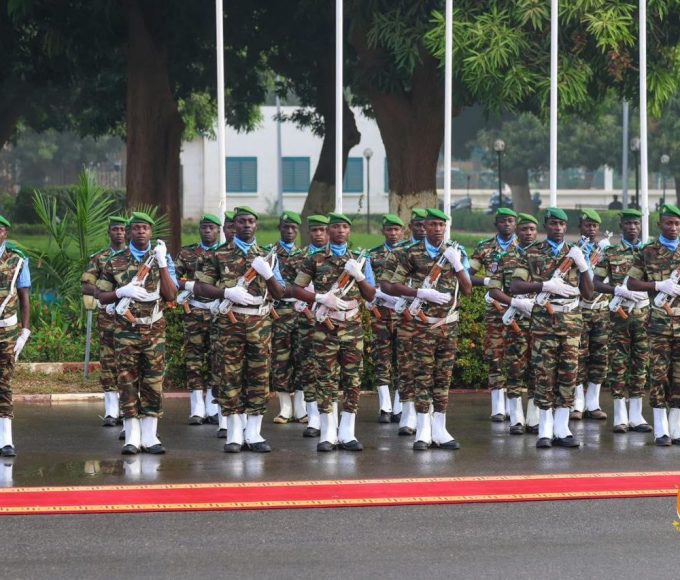
Tinubu’s Nigeria: A Nation Held Hostage by Failure

When Bola Tinubu was sworn in as President in May 2023, Nigerians were told to prepare for tough love, a new era of reform, discipline, and economic rebirth. Years later, what they’ve received instead is a government completely disconnected from the reality of its people, overseeing one of the most brutal collapses of public institutions in modern Nigerian history.
From education to electricity, taxation to transparency, the country is not just struggling, it is suffocating. And the President, instead of listening, doubles down. Instead of reforming, he punishes. Instead of leading, he hides behind policies and proxies.
INEC: The Beginning of the Betrayal
The rot didn’t start in the office; it started on the ballot. The Independent National Electoral Commission (INEC) disastrous conduct of the 2023 general elections set the tone for a presidency built on fraud and contempt for due process.
The promise of electronic transmission of results? Abandoned. The BVAS system? Mysteriously “malfunctioned” when it mattered most. Nigerians waited in the scorching sun to vote, only to have their votes ignored, delayed, or twisted beyond recognition. The Electoral Commission responded with blanket denials, feeble justifications, and zero accountability.
INEC didn’t just fail. It betrayed the very essence of democracy. It gaslit a nation into submission and delivered a tainted mandate that continues to haunt the legitimacy of Tinubu’s presidency.
To date, no one has been held accountable. Not the Chairman. Not the officials. Nothing has changed. And that silence is deafening.
The Judiciary: Justice Bought and Buried
When Nigerians turned to the courts to challenge the chaos of the 2023 elections, they expected justice. What they got was political theatre in robes.
The Presidential Election Petition Tribunal and the Supreme Court both delivered judgments that read like state propaganda, ignoring glaring evidence, dismissing eyewitness testimony, and rubber-stamping INEC’s failure as “substantial compliance.” It was a masterclass in legal gymnastics and moral cowardice.
Today, the judiciary stands not as a check on executive abuse but as an enabler of it, cloaked in legalese, stripped of integrity.
Court orders are routinely ignored. Judges play musical chairs with high-profile cases. Citizens are denied bail while corrupt politicians walk free. And the average Nigerian knows the truth;
Justice is for sale, and the price is far too high for the common man to afford.
A compromised judiciary is more dangerous than a corrupt presidency, because it kills the last hope of redress.
Education is Dead. And the Government Killed It.
There was a time when Nigerian education, despite its flaws, was still seen as a ladder out of poverty, a system with cracks, but not craters. Under Bola Tinubu’s regime, that ladder has not only been broken, it has been deliberately set on fire.
In 2025, Nigeria’s education sector officially hit rock bottom. The most glaring evidence? The catastrophic collapse of this year’s WASSCE results is evident, with fewer than 40 per cent of candidates able to pass five basic subjects, including Mathematics and English. A country of 220 million, the so-called “Giant of Africa”, now stares at a generation of students who have been set up to fail.
And the tragedy doesn’t end with exam scores.
Shortly after the results were released, the WAEC result-checking portal crashed. WAEC blamed “technical glitches” and temporarily shut down the system, promising to restore access within 24 hours. Many Nigerians believe the portal buckled under the weight of high traffic, but no clear explanation was given beyond vague references to “bugs.”
What is clear, however, is that thousands of students and parents were left stranded, refreshing pages, battling system errors, and sitting in cybercafés for hours, all while the authorities scrambled to fix a system that should never have failed in the first place.
It wasn’t just a technical failure; it was another reminder that even the most basic tools in our educational infrastructure are fragile and unreliable.
The story was the same, if not worse, with JAMB. The 2025 UTME became a national embarrassment. Technical failures crippled exam centres across the country. Some students were rescheduled three times. Others were locked out entirely. In several states, test servers crashed mid-exam. Parents who had sacrificed everything to register their children watched helplessly as those dreams disintegrated.
The JAMB Registrar, Professor Ishaq Oloyede, broke down in tears on national television. A powerful gesture, but unfortunately, tears don’t fix systems, and emotions do not replace accountability. What Nigerians needed was answers, not sympathy. What students needed was fairness, not another reminder that their country is designed to disappoint them.
But Tinubu’s administration, ever aloof, ever silent, said nothing.
The President did not issue a statement. The Minister of Education offered no roadmap. There was no task force, no audit, no sense of urgency. Just business as usual. And that’s what’s most infuriating:
This regime doesn’t even pretend to care anymore.
Under Tinubu, education has been deprioritised to the point of collapse. University governing councils were dissolved illegally. ASUU’s warnings have been ignored. Public secondary schools are dilapidated. Teachers are underpaid, overworked, and constantly owed salaries. There’s no investment in technical education. No coherent digital strategy. No curriculum reform. No serious commitment to innovation.
Nigerian students are not lazy; they are resilient, brilliant, and desperate for a future. But they are trapped in a system that is actively failing them at every level, from the blackboard to the broadband. The message is loud and cruel,
If you are young and poor in Nigeria, you are on your own.
This is not just an education crisis. It is a national security crisis, a development crisis, and a moral crisis. When a country stops educating its youth properly, it is not just delaying progress; it is surrendering the future.
Bola Tinubu promised reforms. What he has delivered instead is a generation abandoned, humiliated, and told to endure in silence. If there is any justice left in Nigeria, this will not be forgotten, and it must never be forgiven.
The Oil Sector: Reform or Political Hit Job?
Tinubu’s abrupt dismissal of the entire NNPC board, including Mele Kyari, sent shockwaves through the oil industry. But what followed wasn’t clarity, it was confusion. Investors are pulling back, oil production is stalling, and there’s no sign of a coherent plan. Just more chest-beating from Abuja and more uncertainty for a country that depends on oil to survive.
This isn’t reform, it’s roulette. And every Nigerian is being forced to place their bets on a table rigged against them.
Taxation as Violence
Let’s be honest: Tinubu’s economic policy is not reform, it’s extortion.
Nigerians are being taxed into the ground. Fuel prices have tripled. Electricity is a luxury. Bank transfers are penalised. Customs duties are up. Digital services now come with new levies. Everything is more expensive, from food to school fees to transport, and the government offers nothing in return but speeches and threats.
This is not about building a nation. This is about milking it dry, with zero care for those who can no longer breathe under the weight.
What makes all of these worse is the silence. The arrogance. The refusal of this administration to acknowledge the suffering of its people.
The few who dare to speak out are met with intimidation or indifference. Nigeria is not just in decline; it is in free fall, and the people running the country appear to be watching from a safe distance, protected by wealth, power, and armed guards.
This country cannot survive another year of this recklessness. Tinubu’s regime has become a case study in how to govern without empathy, plan without vision, and rule without shame.
History will not be kind. Neither will the people, if pushed any further.
About The Author
%s Comment
Leave a Reply Cancel reply
Related Articles
The AFCON Final in Morocco and the Controversies That Followed
The Africa Cup of Nations final between hosts Morocco and Senegal ended...
ByWest Africa WeeklyJanuary 20, 2026Mali’s Transition Leader Attends Swearing-In of Guinea’s President Mamadi Doumbouya
Mali’s President of the Transition, General Assimi Goïta, represented the country in...
ByWest Africa WeeklyJanuary 19, 2026Malian Army Conducts Successful Surveillance Operation in Mopti Region
The Malian Armed Forces have carried out a successful territorial surveillance operation...
ByWest Africa WeeklyJanuary 19, 2026Niger’s Security Forces Record Major Gains Against Armed Groups
Niger’s Defence and Security Forces have reported significant results following a week...
ByWest Africa WeeklyJanuary 19, 2026












This is a slanted report devoid of fairness and objectivity, as would be expected from someone who supported another candidate in the last election, someone with an in-sitted bias or just trying to play mischief. Some progressive steps have been taken by this government, and the macroeconomic indices are already improving. Macroeconomic indices will surely follow. Rather, the writer only see the negatives.